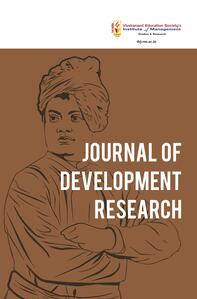
1Tilak College of Science and Commerce, Navi Mumbai, Maharashtra, India

Creative Commons Non Commercial CC BY-NC: This article is distributed under the terms of the Creative Commons Attribution-NonCommercial 4.0 License (http://www.creativecommons.org/licenses/by-nc/4.0/) which permits non-Commercial use, reproduction and distribution of the work without further permission provided the original work is attributed.
As environmental concerns grow and consumer awareness rises, there has been a notable change in purchasing habits, particularly in the fast-moving consumer goods (FMCG) sector. This empirical study seeks to explore consumer perceptions of eco-friendly FMCG products in Navi Mumbai city. A structured survey was conducted with 400 respondents from various demographics, including students, working professionals and homemakers, to evaluate their attitudes, purchasing habits and awareness regarding sustainable FMCG products. The results show that 67% of respondents are aware of eco-friendly FMCG products, but only 45% actually purchase them, which aligns with past research indicating an ‘attitude-behaviour gap’ in green consumerism. This reluctance is attributed to factors such as price sensitivity, limited availability and doubts about green claims.
Furthermore, 56% of respondents expressed a preference for eco-friendly alternatives if they were priced competitively and readily available, supporting the price-quality trade off theory. The study emphasises the importance of brand credibility, government initiatives and eco-labelling in shaping consumer behaviour. Using statistical methods like chi-square tests and regression modelling, the study reveals a significant link between environmental consciousness and purchasing behaviour. The findings offer valuable insights into consumer expectations, the challenges faced by eco-friendly brands and suggestions for businesses to improve their green marketing strategies.
Consumer perception, eco-friendly products, fast-moving consumer goods, green marketing, sustainable consumption, Navi Mumbai
Biswas, A., & Roy, M. (2015) Green products: An exploratory study on the consumer behaviour in emerging economies of the East. Journal of Cleaner Production, 87, 463-468. https://doi.org/10.1016/j.jclepro.2014.09.075
Cerri, J., Testa, F., & Rizzi, F. (2018). The more I care, the less I will listen to you: How information, environmental concern and ethical production influence consumers’ attitudes and the purchasing of sustainable products. Journal of Cleaner Production, 175, 343–353. https://doi.org/10.1016/j.jclepro.2017.12.054
Dangelico, R. M., & Vocalelli, D. (2017). “Green Marketing”: An analysis of definitions, strategy steps, and tools through a systematic review of the literature. Journal of Cleaner Production, 165, 1263-1279. https://doi.org/10.1016/j.jclepro.2017.07.184
ElHaffar, G., Durif, F., & Dubé, L. (2020). Towards closing the attitude–intention–behavior gap in green consumption: A narrative review of the literature and an overview of future research directions. Journal of Cleaner Production, 275, 122556. https://doi.org/10.1016/j.jclepro.2020.122556
Hossain, M. S., & Roy, S. K. (2023). An integrated model of green trust and green perceived value influencing green purchase intention. Journal of Retailing and Consumer Services, 71, 103239. https://doi.org/10.1016/j.jretconser.2022.103239
Joshi, Y., & Rahman, Z. (2017). Investigating the determinants of consumers’ sustainable purchase behavior. Sustainable Production and Consumption, 10, 110–120. https://doi.org/10.1016/j.spc.2017.02.002
Joshi, Y. & Rahman, Z. (2019). Consumers’ sustainable purchase behaviour: Modeling the impact of psychological factors. Ecological Economics, 159(C), 235–243. https://doi.org/10.1016/j.ecolecon.2019.01.025
Leonidou, C. N., Katsikeas, C. S., & Morgan, N. A. (2013). ‘Greening’ the marketing mix: Do firms do it and does it pay off? Journal of the Academy of Marketing Science, 41(2), 151–170. https://doi.org/10.1007/s11747-012-0317-2
Nguyen, T. N., Lobo, A., & Greenland, S. (2017). The influence of cultural values on green purchase behaviour. Marketing Intelligence & Planning, 35(3), 377–396. https://doi.org/10.1108/MIP-08-2016-0131
Paul, J., Modi, A., & Patel, J. (2016). Predicting green product consumption using theory of planned behavior and reasoned action. Journal of Retailing and Consumer Services, 29, 123-134. https://doi.org/10.1016/j.jretconser.2015.11.006
Yadav, R., & Pathak, G. S. (2016). Young consumers’ intention towards buying green products in a developing nation: Extending the theory of planned behavior. Journal of Cleaner Production, 135, 732–739. https://doi.org/10.1016/j.jclepro.2016.06.120